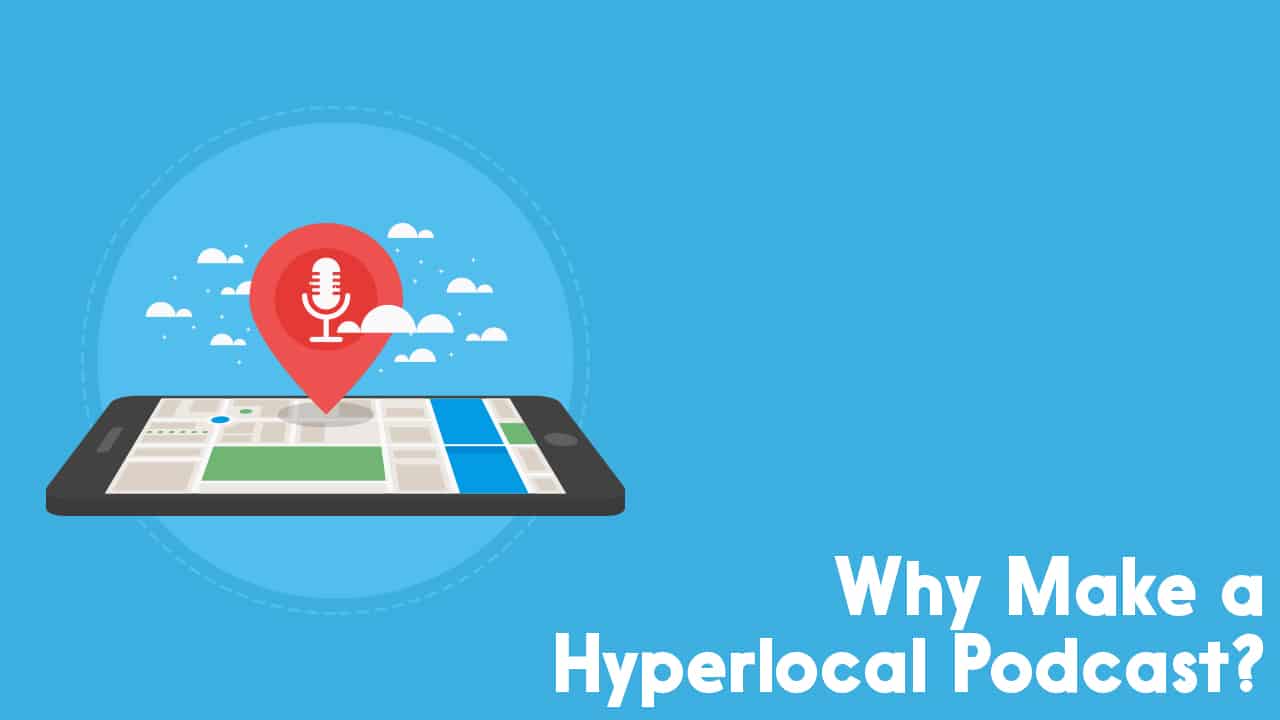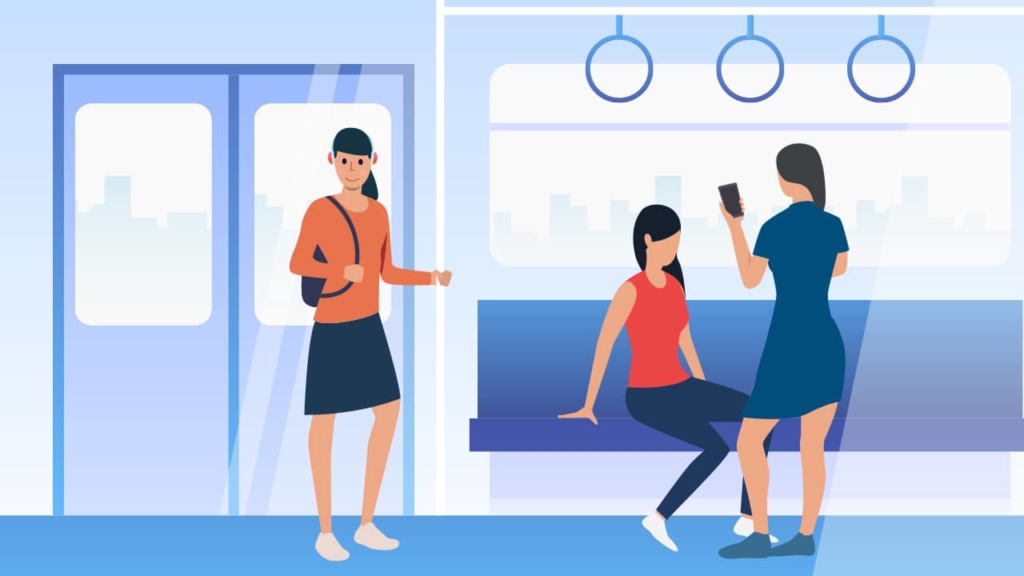Why Make a Hyperlocal Podcast?

Why Make a Hyperlocal Podcast: At-a-Glance
- Hyperlocal podcasts focus on local issues — like sports, politics, restaurants, etc. — and speak directly to people who are interested in those things.
- Running a show like this gives you the opportunity to become an authority figure or influencer in your local community.
- You can also grow a dedicated audience of fans around a hyperlocal podcast. You’re creating content about the place they know, and care deeply about.
- Your audience won’t be restricted to locals though. Folks who moved away years ago, or plan to visit soon may be interested too.
- Read on to find out more…
This is a guest post from our pals at Soundstripe – a company that produces cinematic music and sound effects to help podcasters create better content.
Podcasts have become a staple of our culture, and accessibility has always been the biggest draw. Everyone has access to tens of thousands of radio shows, interviews, and fun conversations because of the devices we carry in our pockets every day.
This accessibility has elevated the podcast industry from a radio replacement to a bazaar of murder mysteries, narrative dramas, news coverage, and everything in between. But podcasts also address humanity’s instinctive desire for belonging — for a sense of community.
Podcasts let us become part of the conversation, even about things that we might not be able to influence on our own. And that feeling of “being part of something” builds a powerful connection, especially if the podcast focuses on something relevant to the listener.
“Hyperlocal” has been a trending term for a lot of industries. It’s a way for organizations to go all-in on this concept of a community. And that mentality lines up perfectly with the sense of connection that people experience through podcasts.
It’s only a matter of time before hyperlocal podcasts grow from a niche market into the next big thing, and there are two big reasons why that’s inevitable.
Defining “Hyperlocal”
First things first: What is a hyperlocal podcast?
Hyperlocal marketing is something that has been around for as long as humans have sold or traded goods. It’s the concept of advertising or creating products that target a very specific audience, usually with strong ties to the company/seller/personality behind the product.
(The official definition of “hyperlocal” is something “relating to or focused on a very small geographical community, as a neighborhood.”)
The term “hyperlocal” means the same thing in the podcast world. Instead of advertising a show and trying to create the next This American Life, hyperlocal podcasts focus on local issues — like sports, politics, restaurants, etc. — and speak directly to people who are interested in those things.
That strategy has its pros and cons, but one very clear benefit is becoming a respected voice in a local community. Doubling down on a very specific audience is a clear statement of intent that says “I care about this place and want to celebrate it.”
And if that mentality has worked for local businesses for centuries, it’s going to continue working for smart podcasters who know how to use it.
Meeting Market Needs
Hyperlocal podcasts are on the same path as hyperlocal business marketplaces were a few years ago. They are growing beyond that small-town feel (a.k.a. “not many subscribers”) and becoming platforms for people to engage each other and stay connected.
More importantly, these shows also provide a way for people to learn something new about a place they already care about and know well.
Maybe that means foodies getting restaurant reviews, or discovering recipes that use local ingredients. Maybe it is a chance to follow local comedians as they trade life stories with other influencers. Or maybe it’s a way to stay in touch with our hometowns or places we hope to visit some day.
People like to learn, whether it’s fun facts, new skills, or interesting stories. There is a clear reason why news and TV networks are investing in podcasts — this industry is here to stay. That accessibility creates new ways for people to choose what they want to learn and when they want to learn it.
In other words, podcasts empower listeners to discover new hobbies.
Podcasts help people find media and communities for all kinds of broad interests, but hyperlocal podcasts can do that at a deeper and more personal level. 2020 has forced everyone to reconsider how we maintain our relationships, especially at longer distances.
Podcasts reduce that barrier because they bring these conversations into our homes, no matter where we live.
Becoming Local Experts
There’s one thing every podcast needs. It’s not listeners, or a website, or a funny Twitter account. It’s not state-of-the-art equipment, podcast music, or a host with the perfect “radio voice.” (Although all these things help.)
It’s subscribers.
Subscribers are the people who listen to each episode within 48 hours of its release. They’re the ones who interact with the show on social media, recommend it to their friends, and submit questions or topics for future episodes.
In other words, subscribers are the foundation for a podcast’s long-term success.
And this is particularly true for hyperlocal podcasts. If you work for a company or personality that is recognized in a city, state, or region, that name adds value to your show. And that value will translate to your listeners because audiences want advice from people like them.
Local listeners want local content from local experts. This is the reason why small businesses continue to thrive, and why social media influencers are just as “powerful” as Hollywood stars or professional athletes.

Following Industry Trends
Podcast listener numbers have only continued to grow, and content creators are launching new shows to capitalize on that. But hyperlocal content has also gotten more traction lately with people traveling less, putting more focus on ways to connect with people, places, and events close to home.
The podcast industry continues to evolve, and there’s no signs of that stopping any time soon. If shifting focus to hyperlocal has worked for other industries, there’s a clear formula — and an obvious path to success — for why this might be the new big trend for podcasters to chase.
Hyperlocal podcasts are a platform for meeting market needs, whether that is teaching listeners new skills or creating a kind of “watercooler” for people to congregate around. More importantly, this style of content can help evolve podcasters into local experts, which is an easy way to build a brand that people know and trust.
Is it the latest shortcut to podcast stardom? Probably not. But it is a proven track to building a faithful subscription base, and that is a key ingredient to long-term success for any show.
Creating Your Own Hyperlocal Podcast
This can play a big role in starting a hyperlocal podcast. If it’s going to be your first show, maybe you need a step-by-step beginner’s guide. Maybe you need to shift your current podcast’s focus to something relevant to your target audience’s interests. Or maybe you need some production and editing help so your show sounds a little more professional.
Transitioning to hyperlocal content is something you can do right away, no matter where you are on your podcasting journey. The important thing to remember is that these shows add value to the listener’s life and help them feel connected to their audience.
With these tips (and the resources linked above), you’ll be well on your way to getting a head start on the competition for your local podcast listeners.
Drew Gula is the copywriter at Soundstripe, a company that produces cinematic music and sound effects to help podcasters create better content.
